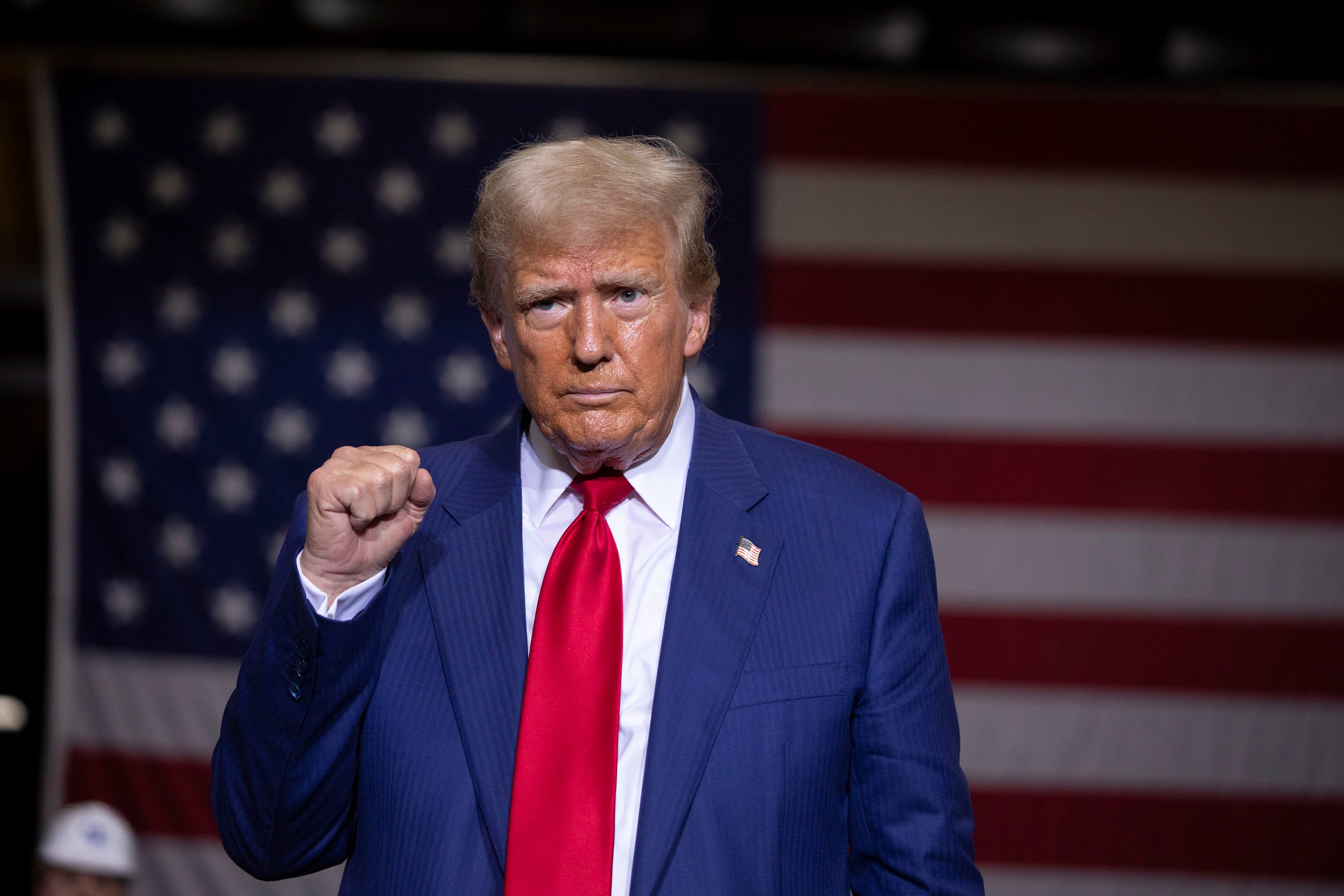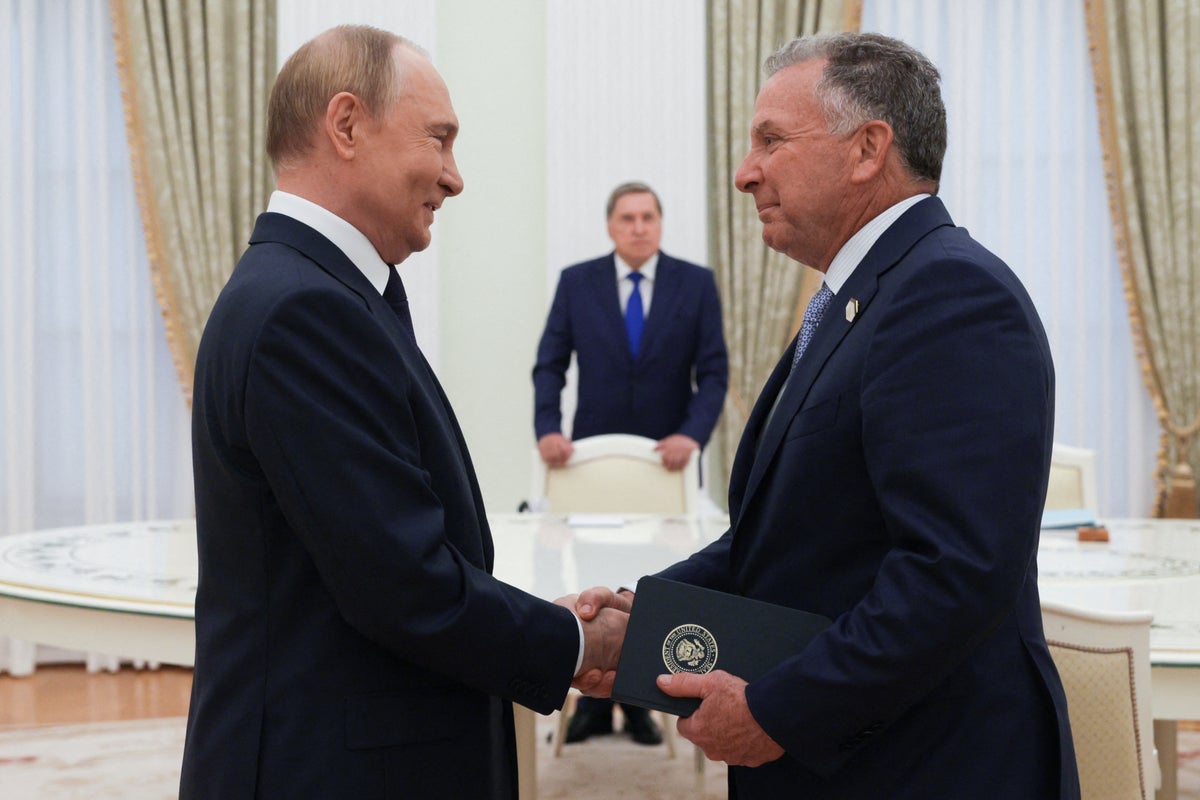Donald Trump and Tim Cook will announce a new $100 billion investment in U.S. manufacturing at the White House on Wednesday as the Apple CEO makes a clear bid to spare his company the brunt of the Trump administration’s impending tariff costs.
The White House said Wednesday that Cook will announce a total of $600 billion in U.S. manufacturing efforts, building on a figure of $500 billion the company announced in February. Cook’s announcement of the new $100 billion investment comes just one day before enforcement of some of Trump’s so-called “reciprocal” tariff rates is to begin.
A White House spokesperson confirmed that the investment was part of an effort to centralize more of Apple’s supply chain in the U.S. — a key target of Trump’s tariff agenda.
Like many tech companies, Apple is set to take a big hit from Trump’s tariffs if they persist in any prolonged fashion. Much of the company’s iPhone assembly still takes place in China, where reciprocal tariff rates of 34% on goods imported to the U.S. will go into effect on Aug. 12. Those rates added on to existing trade duties are expected to cost Apple more than $1 billion over the remainder of the current financial quarter — which ends in September.
Apple has already floated the notion of price hikes for its coming iPhone 17 line without attributing the increase directly to tariffs. And reports have said the hike could be in the $50 a phone range.

That would mean an iPhone 17 would start at $829, a new model iPhone 17 Air would be $979, while a Pro would start at $1,049 and a Pro Max at $1,249 based on recent pricing models, CNET reported.
“President Trump’s America First economic agenda has secured trillions of dollars in investments that support American jobs and bolster American businesses. Today’s announcement with Apple is another win for our manufacturing industry that will simultaneously help reshore the production of critical components to protect America’s economic and national security,” said White House spokesman Taylor Rogers.
Whether the company will actually restore production of the phones themselves to the U.S. is another question. But Cook could also be seeking a carve-out for tech companies and other components used in Apple products with his public show of support for Trump at a time when the White House is in dire need of positive news to push flagging economic numbers and the ever-present Jeffrey Epstein scandal out of the national news headlines.
“Apple will increase its investment across America and incentivize global companies to manufacture even more critical components in the United States,” said a White House official.
Cook’s projection in July that tariffs would cost the company $1 billion over the third quarter of the year came despite an existing carve-out in Trump’s reciprocal tariff rates for smartphones, computers, and some other assembled electronics. Those products are still affected by other tariffs on China.
Jobs numbers released by the Bureau of Labor Statistics on Friday were so bad they triggered a vengeful president to fire the agency’s commissioner. White House officials then spent the weekend insisting that Americans had the right to “reliable” statistics while backing firmly away from Trump’s assertion that Erika McEntarfer, the fired commissioner, was cooking the numbers.
For months, the president and the White House have worked to assure Americans and the media that his reciprocal tariffs combined with a 10% across-the-board rate would not slow economic growth and lead to recession, as some economists predicted. Wednesday’s announcement is aimed at countering the narrative of Trump’s critics.
But plunging rates of consumer spending and a slowing of hiring by the private sector could make that message hard for the president to sell.
“The economy is on the precipice of recession. That’s the clear takeaway from last week’s economic data dump. Consumer spending has flatlined, construction and manufacturing are contracting, and employment is set to fall,” Moody’s chief economist Mark Zandi tweeted on Sunday.



